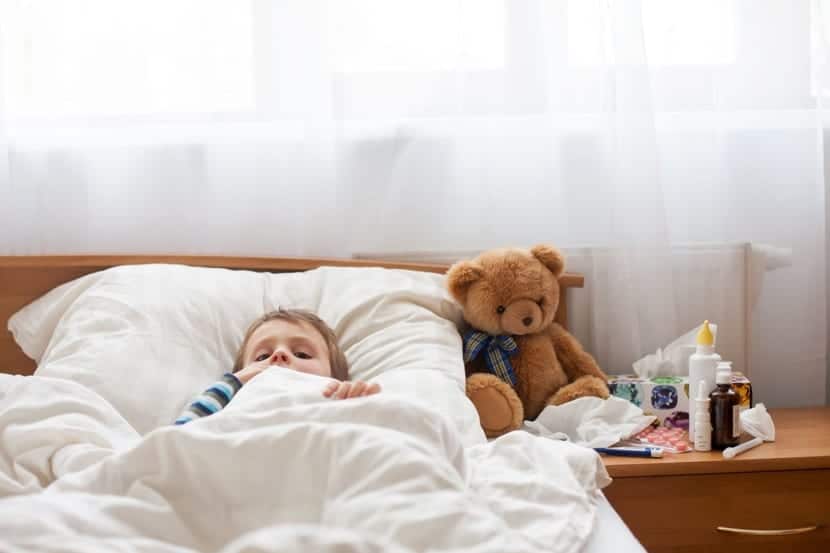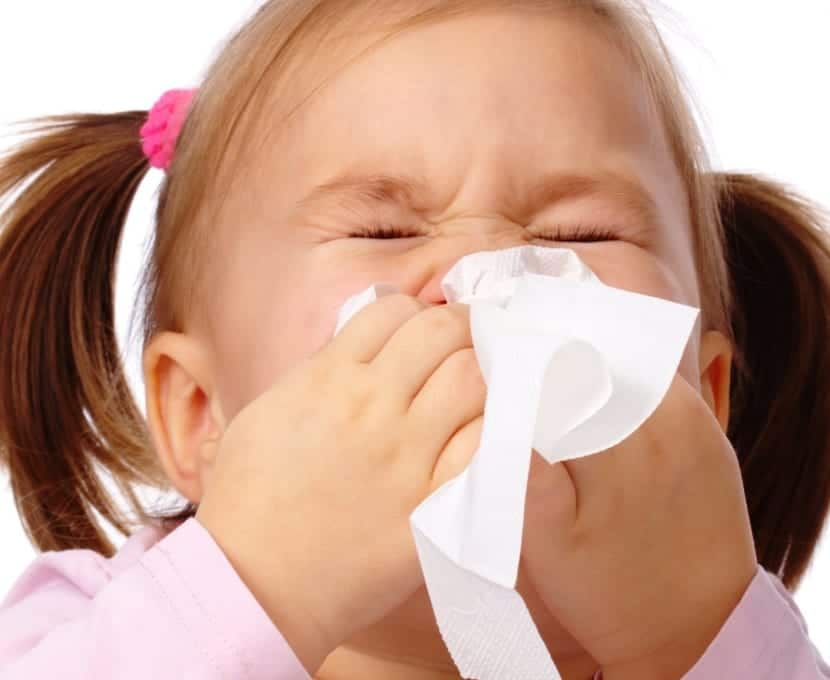
Young children when they start in nursery school (0 to 3 years or 0 to 6 years), can begin to get sick very easily due to the infections that occur within the classrooms. It is quite common to hear mothers and fathers complaining that their children were very healthy until they started going to nursery school.
In fact, many parents also complain that they have to pay the nursery school fee so that children spend more time at home sick than enjoying or taking advantage of nursery school. Although this is quite normal and common in any part of the world, it is worth taking a few points into consideration.
When they start school: common illnesses
Young children when they start kindergarten often get frequent upper respiratory infections, including colds and secondary ear infections. In fact, experts estimate that the average child has six to eight upper respiratory tract viral infections each year.
Taking into account that this is a common average, it means that some children receive more conditions during the school year and others less. It seems likely that children in nursery schools have the most infections, as they tend to be exposed to more people and more germs… and have a weaker immune system than older children.
It is also common for children who start in nursery schools to go through stomach viruses such as gastroenteritis that can cause vomiting, diarrhea and severe stomach pain.

Fortunately, the more time children spend in nursery school surrounded by peers, the fewer infections they tend to get ... because little by little they are immunized to the germs, bacteria and viruses that are around them constantly. When they start in preschool, children who were in nursery school seem to get sick less often than children who were not previously in school. In other words, your child is likely to get very sick at some point in his early life; therefore, if it does not occur during the first years of voluntary schooling, it is likely to occur during the beginning of the school year at school.
Diseases and the immune system
Although parents and pediatricians are often frustrated when a child gets sick over and over again, if he is in nursery school and is otherwise growing and developing normally, and if the child has had serious infections (such as pneumonia or other infections requiring hospitalization). So it is not very likely that he or she has some kind of problem with their immune system ... He is just growing and it is normal for him to get some normal infections at his age.
Instead, there are some warning signs of a primary immunodeficiency that can include:
- 8 or more ear infections in a year
- More than two sinus infections per year
- Two months or more of antibiotics per year of treatment
- Two or more cases of pneumonia in a year
- Inability of a baby to gain weight or grow normally
- Deep and recurrent abscesses on the skin or organs.
- Recurrent thrush in the mouth or elsewhere on the skin after the age of one year
- Need for intravenous antibiotics to clear infections
- More than two deep infections in a year
- Family history of primary immunodeficiency
If you think your child may be suffering from a primary immunodeficiency, ask your pediatrician about whether there is the possibility of doing tests to detect if your child may have problems with the immune system. In case it is so, then appropriate measures should be taken to improve their health status as soon as possible.

How to avoid infection
Since keeping a child out of nursery school is not a practical option for many parents. There are a few options that you can consider to help your child stay healthy and get as sick as possible even when they go to nursery school. These considerations are as follows:
- Get your child vaccinated against the flu and make sure they receive all the vaccines that are in effect on the vaccination schedule.
- Avoid situations similar to nursery schools as places where there are many children. In this way, your child will have to be unnecessarily exposed to other groups of children who may be sick.
- As the baby grows, try not to use the pacifier (at least during the day), to avoid contamination by taking another child's pacifier. This is a direct pathway for germs and viruses that can infect your child quickly.
- Teach your child to wash their hands frequently to avoid spreading germs or getting in contact with their mucus.
- Promote in your child an attitude of good hygiene in general both inside and outside the house.
Most importantly, understand that frequent infections are very common in the first year or two of kindergarten and are generally not a cause for concern. Whenever your child gets sick, they will have to call the pediatrician to tell you what the best treatment option is. Do not treat your child from home without consulting a pediatrician as this could only make the conditions worse and that something that could have been treated with a simple treatment, worsens the health of your child by leaps and bounds.

In addition, it is very important that you try to maintain as much flexibility as possible in your work schedule and try to keep as many sick days as possible your child at home with you to have the best care. This is necessary to take into account if you have to go back to work because when children start in nursery school, at least at the beginning and until their immune systems gain strength, they will spend more time at home than at school.